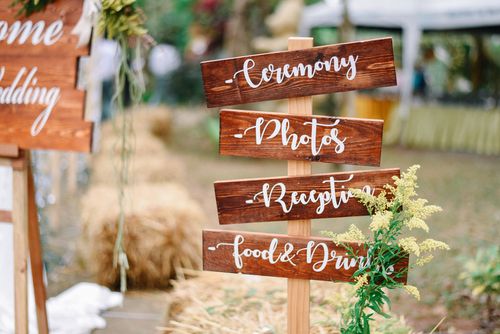 An outdoor wedding can be a memorable and romantic way to celebrate your love. And in the COVID-19 age, it’s a great option for saying “I do.” The CDC mentions that small outdoor weddings are less risky than larger gatherings, especially when they include risk-reducing measures. Some planning aspects haven’t changed, but you’ll need to keep in mind some important essentials. This quick guide can help you put together a safe and enjoyable outdoor wedding.
An outdoor wedding can be a memorable and romantic way to celebrate your love. And in the COVID-19 age, it’s a great option for saying “I do.” The CDC mentions that small outdoor weddings are less risky than larger gatherings, especially when they include risk-reducing measures. Some planning aspects haven’t changed, but you’ll need to keep in mind some important essentials. This quick guide can help you put together a safe and enjoyable outdoor wedding.
Why Outdoor Gatherings May Be Safer
Virtual weddings are still the safest. But infectious disease expert Dr. Thomas A. Russo explains that winds can disperse virus-carrying droplets. Since they don't linger in the air as much, they don’t remain in high concentrations. And because there’s more room outside, physical distancing is much easier.
Does hosting your event outside automatically make it safer? Dr. Russo says no. He mentions several risky behavior examples from September 2020’s White House Rose Garden gathering. Very few attendees wore face masks, he says. Seats were also crowded instead of spaced apart. And people didn’t steer clear of physical contact. They shook hands, hugged, and stood close together as they did pre-pandemic.
It's also wise to pay attention to risk levels in your region. An outdoor wedding can work if you live in a low-risk area. But if you’re in a moderate-, substantial-, and high-transmission area, consider a virtual-only event. Check out Columbia University’s COVID-19 risk map or the CDC’s COVID Data Tracker for transmission rates in your community.
Considerations for Your Venue and Vendors
From picturesque botanical gardens to your cozy backyard, you have many outdoor venue options. Your event’s budget and vision can guide you in choosing a fitting location. Some have both inside and outside event spaces, but others are outdoor-only. Depending on where you host, you’ll need to rent tables, tents, décor, tableware, lighting, and even restroom facilities.
Anja Winikka mentions more essentials in a piece for The Knot. You may want to include umbrellas, industrial fans, or blankets for rainy, hot, or chilly weather. If your site has no native electrical source, consider asking an electrician to scope things out. This person can review your lighting setup and let you know if you’ll need a generator – especially for your sound, food storage, and other equipment.
Wedding Wire’s Kim Forrest mentions that vendors should know both industry best practices and local public health orders. They’re key to developing safety protocols for everything from staging photos to beverage service. That’s why expertise and a collaborative spirit are important for your wedding’s success. You’ll need to communicate these protocols to your guests. Your wedding website is the perfect place to offer this information.
More Risk-Reducing Tips for Your Wedding
Even with more ventilation and space, minimizing risk is key for outdoor weddings. Dr. Russo suggests keeping tables at least 15 to 20 feet apart to reduce the spread of virus-carrying droplets. Plated meals are also less risky than a buffet or family-style service. It's also wise to have your guests individually get their meals or have them go up in small groups. Avoid sharing food, utensils, and glasses with each other. Meanwhile, don’t forget to wear face masks and practice physical distancing plus proper hand hygiene.
Hosting a shorter event can also reduce your guests’ risk. NPR’s Maria Goody explains that the risk of COVID-19 spread can increase with lengthy close contact. And while you’re at it, keep your guest count smaller. It’s easier to physically distance with fewer people in the same space.
Love in the Great Outdoors
Big weddings may be a thing of the past. But couples are improvising in the age of COVID-19, as this year’s outdoor weddings prove. Staying informed, choosing an ideal venue, and practicing safety protocols are all vital in making your celebration a success.